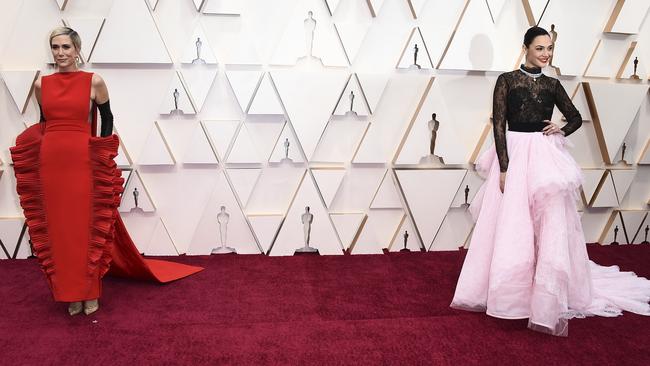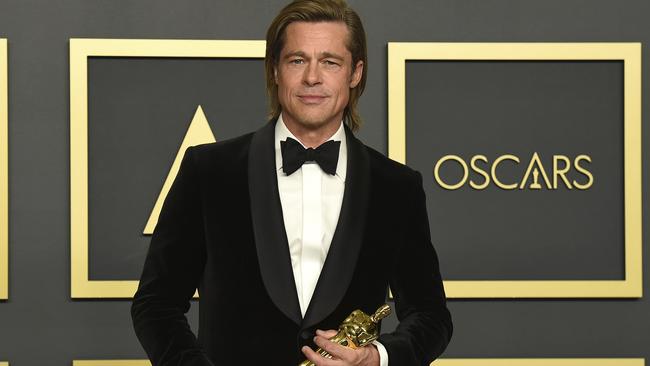Oscars 2020: Brave new world, as foreign language film Parasite wins best picture
It’s taken 92 years, but a non-English language film has finally won Best Picture. Has the Academy finally woken up?
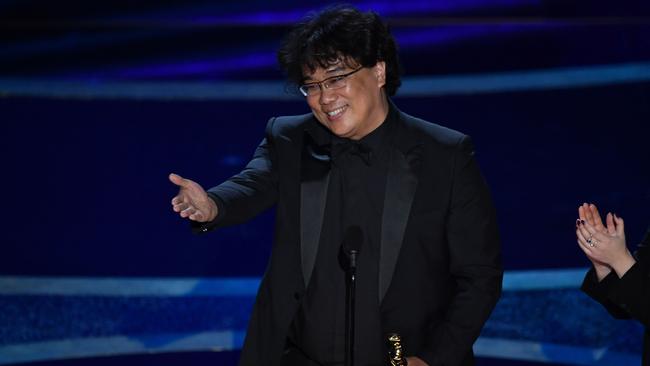
Well, it finally happened. A film not in the English language won the Academy Award for best picture. It only took 92 years.
Bong Joon-ho’s Parasite, the first South Korean film to be nominated for an Oscar, was the big winner at this year’s Academy Awards, taking out four awards, including best picture.
And in a way the Academy can almost regard itself as a winner, by virtue of its choice. The best picture winner has come to feel like a compromise, a conservative or a dull option. Moonlight, in 2017, was a rare recent example of a movie that truly deserved to be called best picture. Parasite is in the same category.
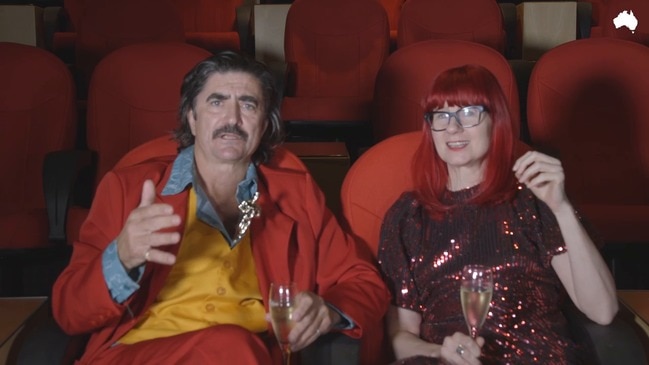
And now, perhaps, there’s room to look beyond the confines of “best foreign language film” or “best international film” when it comes to world cinema. Let’s hope this isn’t an anomaly.
Parasite producer Kwak Sin-ae took an optimistic view, saying in her acceptance speech for best picture: “I feel like a very opportune moment in history is happening right now.”
Parasite also took out not only best director but also best original screenplay as well as the expected best international feature.
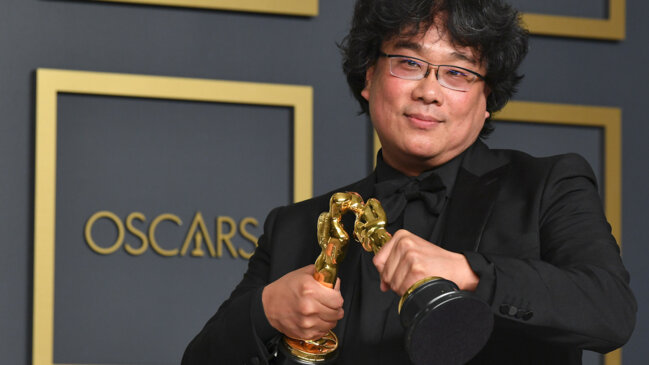
Last year, it was thought that Alfonso Cuaron’s Roma might be the first film not in the English language to take out best picture. But it was not to be. Cuaron won best director and cinematography, as well as best foreign language film. But that was the year of the bewildering elevation of Green Book, whose awards included best picture and best original screenplay.
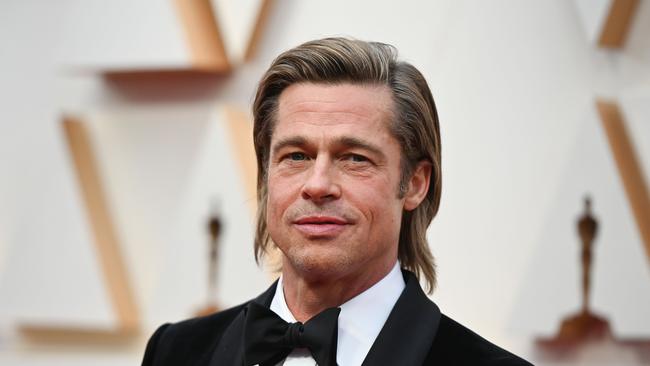
Bong Joon-ho’s acceptance speech for his best director award was a generous, lovely tribute to his fellow nominees, two in particular. He cited the words of Martin Scorsese that inspired him as a film student, saying that, when he was young, he “carved deep into my heart” a quote by Scorsese: “The most personal is the most creative.” (Scorsese’s The Irishman was nominated for 10 Oscars but won nothing.)
"Thank you. I will drink until next morning," Bong Joon-ho says at the end of a heartwarming speech after winning the #Oscar for Best Directing for "Parasite." https://t.co/v1zenga3S3 pic.twitter.com/5ImpdUvClH
— ABC News (@ABC) February 10, 2020
And Bong paid tribute to the support that Quentin Tarantino gave to him and to Korean cinema. “Quentin, I love you,” he said. He said he’d like to get a Texas chainsaw and divide up his statuette between all five nominees.
There was a widespread assumption that Parasite, nominated in six categories, would take out the award that is now called best international feature film but was once called best foreign language film. And so it did.
Accepting the award, Bong said that he was very happy to be the first winner of the award under its new name.
In interviews, Bong had been philosophical about the fact that Parasite was the first Korean film to be nominated, and sanguine about its chances. “It’s a little strange, but it’s not a big deal,” he told Variety. “The Oscars are not an international film festival. They’re very local.”
The love for Parasite has been building steadily since its world premiere at Cannes last year, at the same time as Once Upon a Time … in Hollywood.
It took out the best cast prize at the Screen Actors Guild Awards, a win that often has been a precursor to a best picture win. It has been a critics’ favourite, and a sterling box-office performer in the US. Bong also has been a visible and lively presence at Q&As and awards ceremonies, accompanied by his interpreter, Sharon Choi, who is also a director, and is rumoured to be contemplating a film about the awards season.
"That quote was from our great Martin Scorsese."
— ABC News (@ABC) February 10, 2020
In a heartwarming moment, Bong Joon-ho recognizes Martin Scorsese after winning the Oscar for Best Directing—and the crowd gives Scorsese a standing ovation. https://t.co/8kz7m5vtnF #Oscars pic.twitter.com/s4mOuwPKBQ
The Academy — the Academy of Motion Picture Arts and Sciences — is synonymous with movie-making in Hollywood, an industry that regularly has used the talents of filmmakers from around the world. But its relationship with filmmakers working in other countries and other languages has been an up-and-down affair. A separate category for what was called foreign-language films was established in 1956. The first winner was Federico Fellini’s La Strada, which won an Oscar for its producers, Carlo Ponti and Dino De Laurentiis.
Fellini became a fixture on the nominees list, being nominated 12 times but never winning.
Before Parasite, 10 films in a language other than English had been nominated for best picture, beginning with Jean Renoir’s Grand Illusion in 1939. Some of them were nominated in multiple categories: Ang Lee’s Crouching Tiger, Hidden Dragon, for example, was up for 10 awards, and won four — but not screenplay, director or film.
This year’s Academy Awards belong to Parasite and to Bong. It’s a great result, and judging by the warmth of the response in the room, a highly popular one.
There certainly weren’t any surprises in the four acting categories: Joaquin Phoenix (best actor for Joker), Renee Zellweger (best actress for Judy), Brad Pitt (best supporting actor for Once Upon a Time … in Hollywood) and Laura Dern (best supporting actress for Marriage Story) were all widely predicted winners.
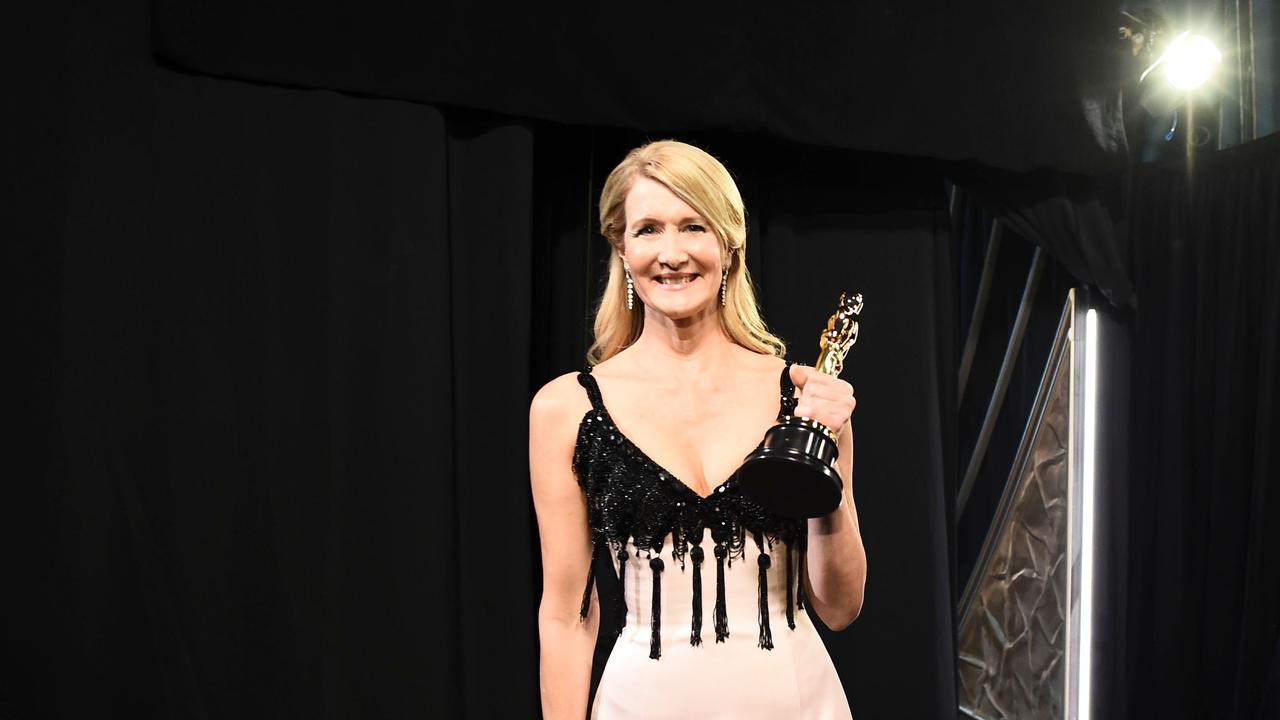
“Judy Garland did not receive this honour in her time,” said Zellweger. “I am certain that this moment is an extension of the celebration of her legacy that began on our film set.”
Pitt, winning his second Academy Award, gave an emotional speech in which he thanked his children and paid tribute to his director, Tarantino, and reflected on his journey in the industry. “Once upon a time in Hollywood,” he said. “Ain’t that the truth.”
At previous award ceremonies, Phoenix made strong, thoughtful speeches about climate change and systemic racism, but this time he seemed to be making a more personal plea with a speech that ended by quoting the words of his brother River, who died in 1993. He called for greater efforts to fight injustice, whether that applied to gender equality, racism, queer rights, indigenous rights or animal rights.
“I have been a scoundrel all my life,” Phoenix said. “I’m grateful that so many of you in this room have given me a second chance. I think that’s when we’re at our best, when we support each other, not when we cancel each other out for our past mistakes, but when we help each other to grow.”
Icelandic musician Hildur Gudnadottir, who won best score for Joker, added her voice to calls for greater inclusion in the industry. “To the girls, to the women, to the mothers, to the daughters who hear the music bubbling within, please speak up,” she said. “We need to hear your voices.”
Even what might seem to be a left-field choice, best adapted screenplay to Taika Waititi for his World War II comedy Jojo Rabbit, wasn’t exactly a surprise. The film has divided critics, but the screenplay has been a regular nominee and winner in the awards season.
Waititi, accepting his award, dedicated it “to all the indigenous kids in the world who want to do art and dance and write stories. We are the original storytellers,” he said, “and we can make it here as well.” Later, as a presenter, he made an acknowledgment of country, recognising the traditional owners of the land on which the Oscars ceremony was held.
As for the ceremony itself, the music this year set another record: for the first time, the Oscars had a female conductor, Eimear Noone.
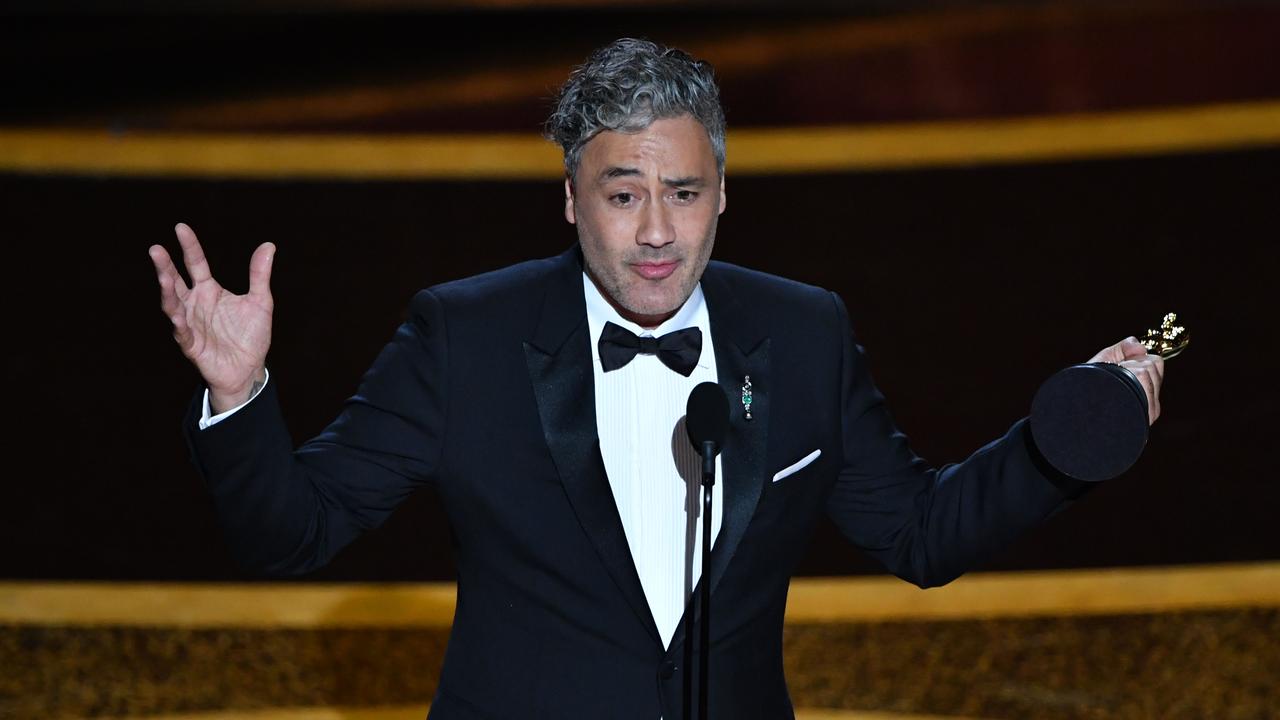
The producers once again dispensed with an individual host. This decision might take the pressure off a single performer, and it does allow a few presenters — Maya Rudolph and Kristen Wiig, Julia Louis-Dreyfus and Will Ferrell, this year — to do comic routines that provoke calls for them to be hosts next year. But it hardly speeds things up. It just means that there are several presenters introducing other presenters, who then introduce nominees.
Janelle Monae provided an incendiary, exhilarating opening, with a musical number that also gave a shout-out, via its costumes, to films that had been overlooked in the Oscar nominations — movies such as Midsommar, Us and Dolemite is My Name.
“I’m so proud to be standing here as a black queer artist telling stories,” Monae said.
Idina Menzel gave a powerhouse performance of her Oscar-nominated song from Frozen 2. She was also joined on stage by nine other Elsas from around the world, performers who dubbed and sang her character, singing in their respective languages.
But why was Eminem there? He sang Lose Yourself, which won an Oscar in 2002, although he wasn’t there to collect it. Who says you only get one shot?

